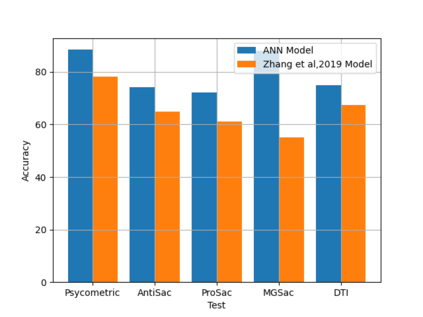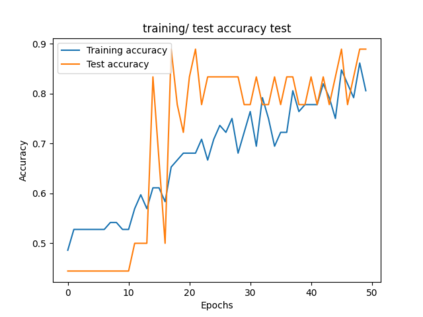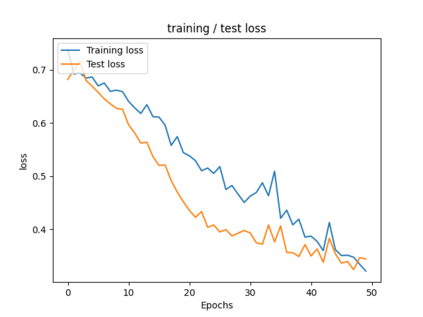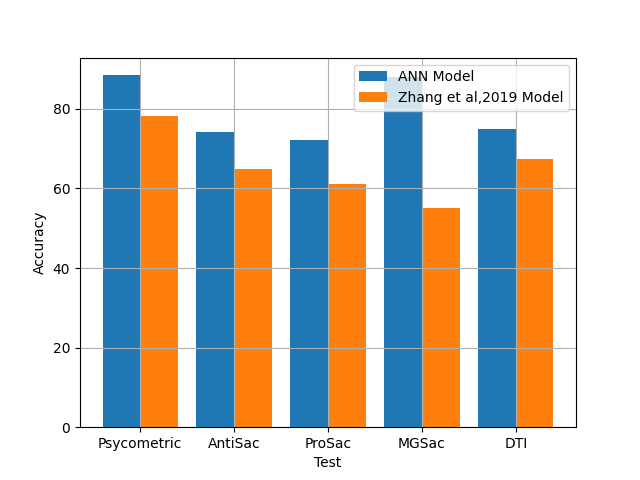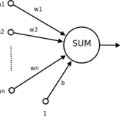Fetal alcohol spectrum disorder (FASD) is a syndrome whose only difference compared to other children's conditions is the mother's alcohol consumption during pregnancy. An earlier diagnosis of FASD improving the quality of life of children and adolescents. For this reason, this study focus on evaluating the use of the artificial neural network (ANN) to classify children with FASD and explore how accurate it is. ANN has been used to diagnose cancer, diabetes, and other diseases in the medical area, being a tool that presents good results. The data used is from a battery of tests from children for 5-18 years old (include tests of psychometric, saccade eye movement, and diffusion tensor imaging (DTI)). We study the different configurations of ANN with dense layers. The first one predicts 75\% of the outcome correctly for psychometric data. The others models include a feature layer, and we used it to predict FASD using every test individually. The models accurately predict over 70\% of the cases, and psychometric and memory guides predict over 88\% accuracy. The results suggest that the ANN approach is a competitive and efficient methodology to detect FASD. However, we could be careful in used as a diagnostic technique.
翻译:由于这个原因,本项研究的重点是评估使用人工神经网络对儿童进行FASD分类,并探索其准确性。ANN被用于诊断医学领域的癌症、糖尿病和其他疾病,这是一个产生良好结果的工具。所使用的数据来自5-18岁儿童的测试电池(包括心理测定、读数运动和传播高压成像的测试 ) 。结果显示ANN方法是一种检测FASD的竞争性和高效方法。但是,我们可以谨慎地使用诊断技术。

